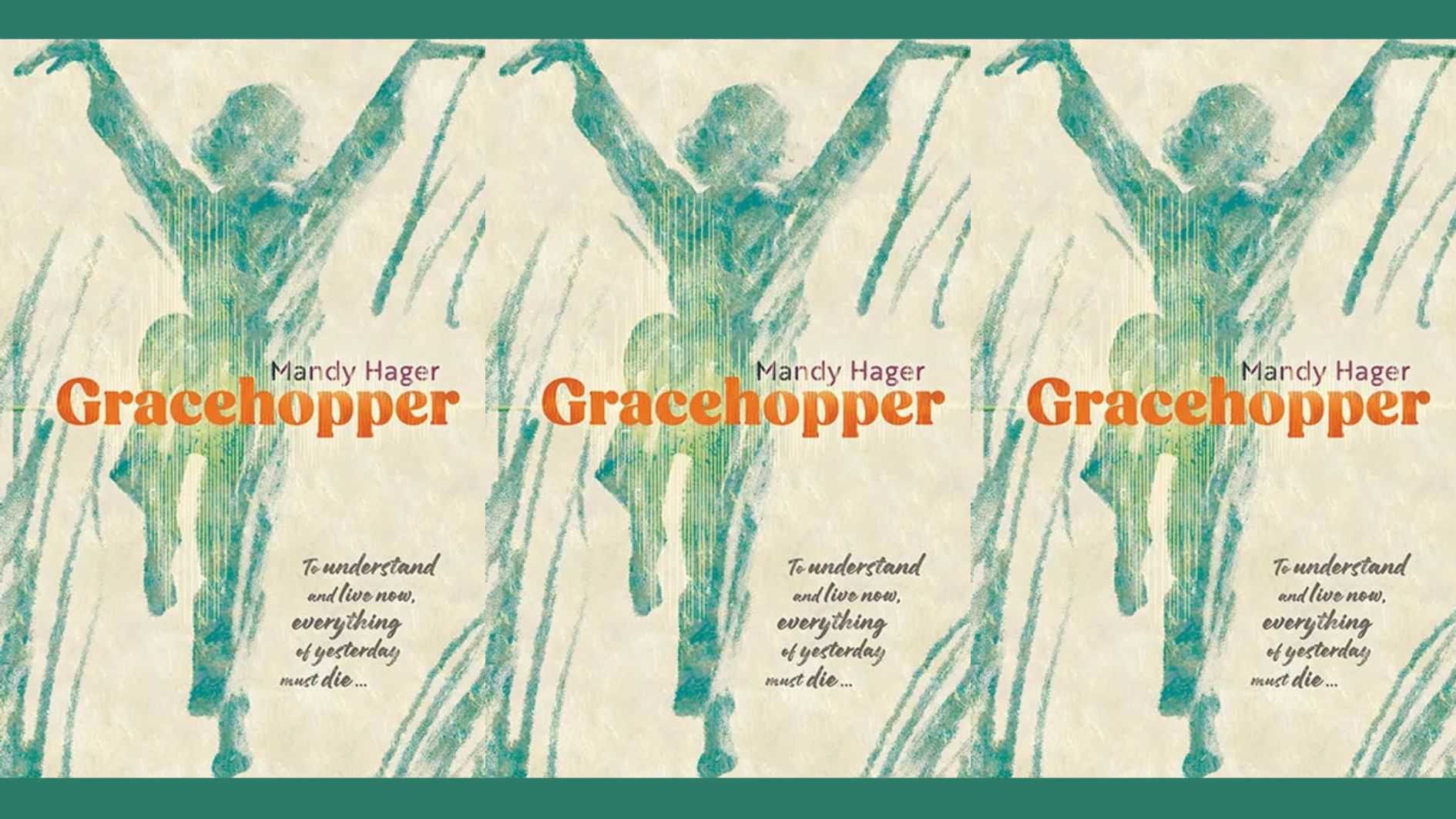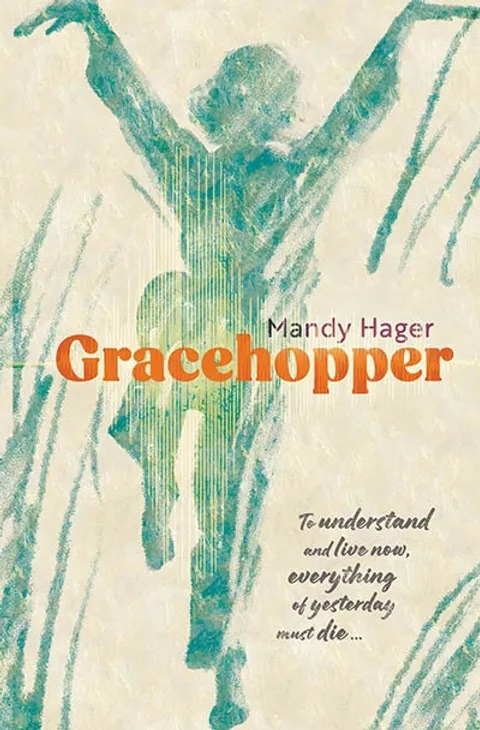Mandy Hager’s latest young adult novel is a family drama bringing together issues of care work, disability, and identity. Elizabeth Heritage reviews.

Gracehopper is Mandy Hager’s new YA novel about Grace Murphy, a Taiwanese 18-year-old living in Wellington with her white single mother Katherine. Katherine has some kind of severe and chronic mental illness, and Grace is a parentified child who has been caring for her mother since a very young age.
The novel opens with an arresting scene wherein Grace is confronted by the sudden return of her former best friend Charlie Darwin when he unwittingly makes her the victim of one of his YouTube pranks. We immediately flash back from 2017 (the present of the novel) to 2004, Grace’s first day of primary school, when she and Charlie met. Grace is an outsider because she is the only Taiwanese child in the class, and Charlie because he is the only Little Person. The novel is skilfully told in a series of time-jump scenes circling the events that led to Grace and Charlie’s estrangement and, later in the novel, the mysterious circumstances of Grace’s birth.
It’s a believable family drama with enough emotional resolution to be narratively satisfying…
Hager is a disabled writer and what I liked best about Gracehopper is the depictions of different forms of disability and the interdependencies of care and care work. As well as showing care work as a form of love and reciprocity (as between Grace and her elderly neighbour, or Charlie and his parents), Hager does not shy away from acknowledging that it can also be brutally difficult: “Why is [Grace] the one left crying alone in hospital toilets, time after time, having to hide it, not stir things up, never putting herself first, sucking up the blame? … She’s so tired her blood’s hardened to lead … pulled between compassion and rage. It’s exhausting.”
The overall message I took from this—which could not be more timely—is that care fails when it is left to an unsupported individual, and thrives when there are functional and accessible state systems and social networks in place.
Charlie was my favourite character. I had a word with Al Gray, a Wellingtonian Little Person and fellow member of Crip the Lit* who worked closely with Hager on this pukapuka. He said, “Working with Mandy was a really good experience. Once she saw I was happy to talk openly about my dwarfism, she started to ask questions way beyond the usual ones I get. And then to see my answers framed in the story itself in terms of the physical actions, attitudes, medical and social aspects of the character was really exciting—I was finally reading a dwarf character I could truly believe in.”
…I was finally reading a dwarf character I could truly believe in.
Al Gray
The part of Gracehopper I was initially less sure about was Grace as a Taiwanese character created by a Pākehā author. I was struck by the contrast between the wonderful specificity of Charlie’s dwarfism versus the generic pan-Asianness of Grace.
The book opens with a quote from Bruce Lee (who was from Hong Kong) and Grace is a student of the martial art he invented, Jeet Kune Do. As I read I kept being reminded of the 1984 film The Karate Kid, also a story about a troubled teen living with a single mother who turns to martial arts to help them work through their issues (although in that case, karate is from Okinawa). The cover image of Gracehopper shows a figure in the crane pose made famous by the film, and the book’s title (which is not, as I had first thought, a reference to the pioneering computer scientist Grace Hopper) is a play on Grace and “grasshopper”, the Western pop cultural term for a young student of martial arts. Although this is often associated with The Karate Kid it is in fact from the 70s US TV show Kung Fu, also a media property made largely by and for white people, this time featuring a Chinese martial art.
I checked in with Hager about this and she said, “I’ve thought about this issue a lot. With Grace, the point is that she’s never had any way to connect meaningfully to her ethnicity and so is, by default, raised as a Pākehā kid. I myself am the child of two parents who were wrenched from their place of birth and then made to bury any hint of their difference in an attempt to fit into Pākehā culture. So I feel that I have some insight into this long-term hurt and pain.”
…what I liked best about Gracehopper is the depictions of different forms of disability and the interdependencies of care and care work.
In effect, Katherine has so successfully alienated Grace from her Taiwanese roots that she’s had to fill in the gaps of her self-knowledge using Western stereotypes. “She’s stolen my life,” rails Grace, and I am with her in that anger. Overall, I really enjoyed Gracehopper. It’s a believable family drama with enough emotional resolution to be narratively satisfying while neatly avoiding tired tropes of disabilities having to be cured in order to qualify as a happy ending. The romance subplot is very well drawn, with an on-page chemistry that feels compelling and natural. Recommended for older teens and those comfortable with mature themes.
*Crip the Lit is the disabled writers’ co-op of Aotearoa. All are welcome—you don’t have to have had a book published and you certainly don’t have to prove your disability! If you’d like to join the mailing list please email cripthelit@gmail.com


Elizabeth Heritage
Elizabeth Heritage is a Pākehā arts journalist and freelance publishing professional, and does comms for the Human Rights Measurement Initiative. She is based online at www.elizabethheritage.co.nz and IRL in Wellington.



